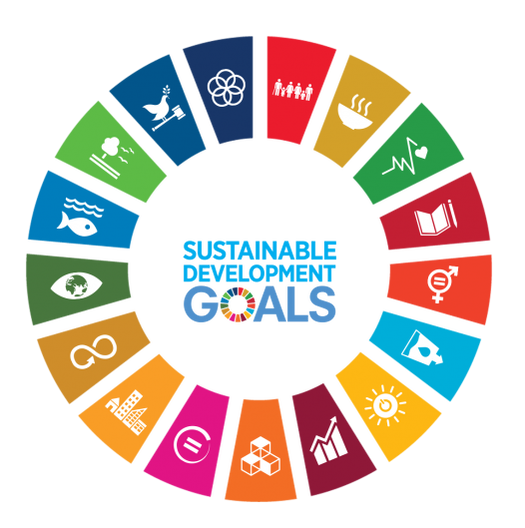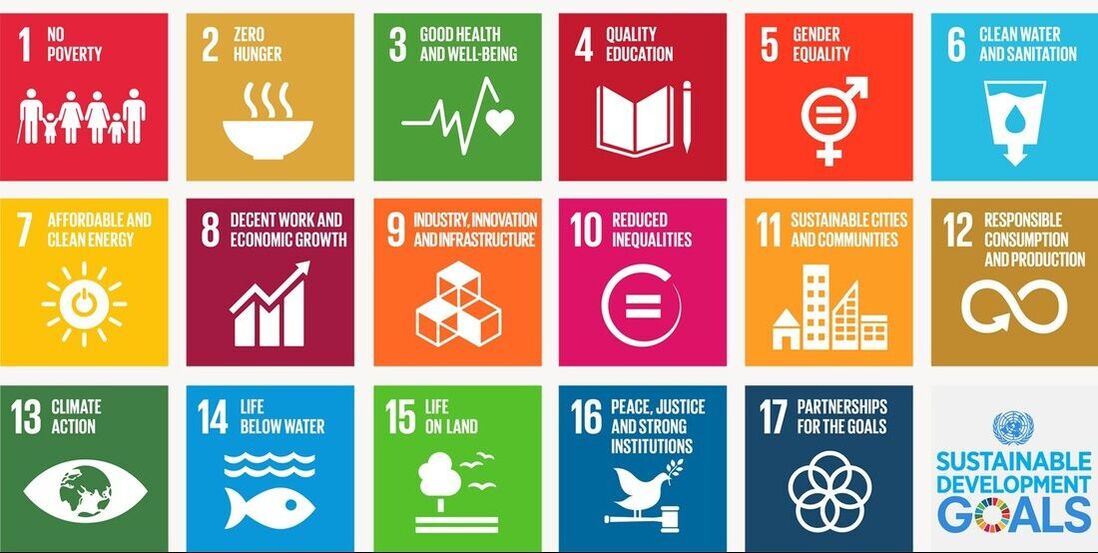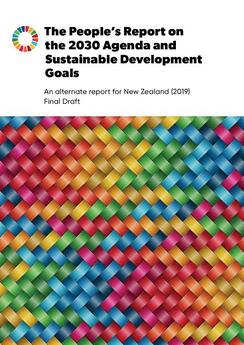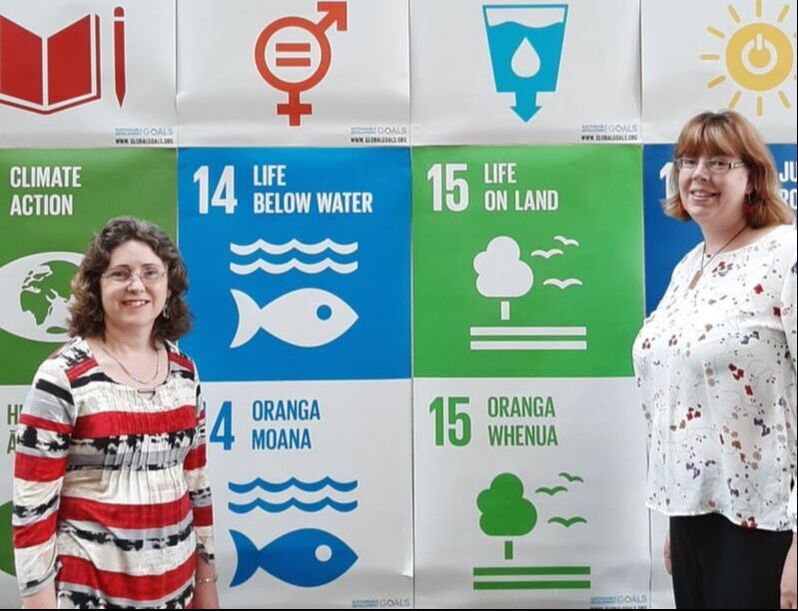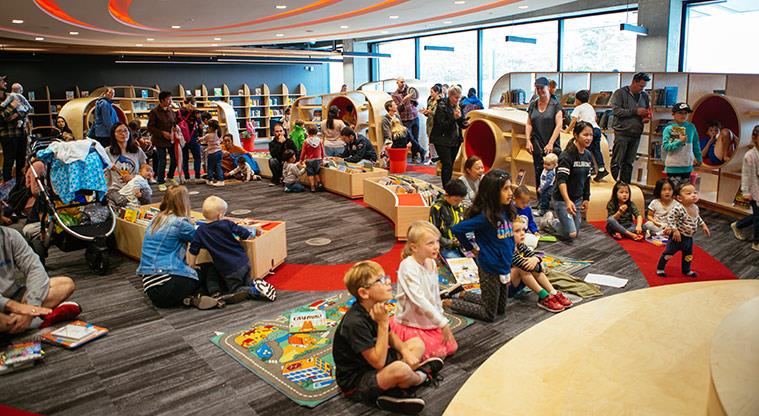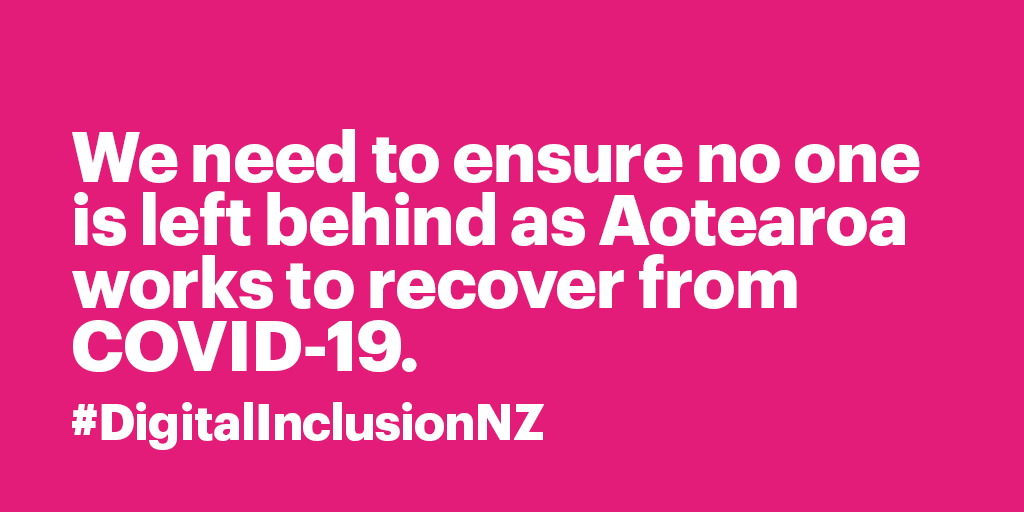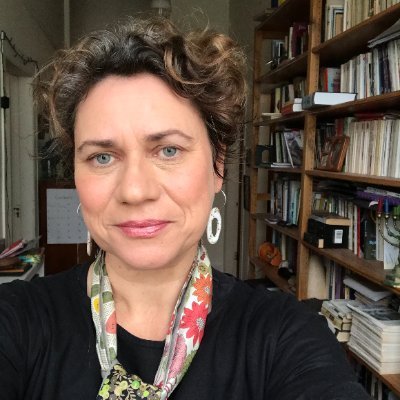Viewpoint: Libraries, Sustainable Development Goals & Economic Recovery
|
Libraries are now more important than ever with a global recession looming. New Zealand and Australia are experiencing uncertainty as to what the ‘new normal’ could look like. There has been a wealth of inspiring kōrero about thriving in a post-COVID-19 world and strategies for strengthening and amplifying the essential contribution of our libraries.
There is an opportunity to use this experience to learn, grow, renew and regenerate. A better way forward already exists within the Sustainable Development Goals (SDG) framework, for a recovery that embraces a sustainable and equitable approach. We can have a society that prioritises our interconnections with each other and the planet. In 2015, the United Nations member states committed to 17 Sustainable Development Goals to achieve a better and more sustainable future by 2030. The UN Sustainable Development Goals provide a valuable framework for making visible the wide impact of libraries, which make significant contributions across many of the SDG’s. Now is the time to recognise the urgency for this project along with an opportunity to speed up and amplify the best of what is already happening. |
What are SDGs?
The UN 2030 Agenda is a universal call to action to end poverty, protect the planet and ensure that everyone, everywhere enjoys peace and prosperity. The SDGs are interconnected – often the key to success for one will involve tackling issues more commonly associated with another. The UN’s 193 Member States adopted them in September 2015, and the goals came into force on 1 January 2016. (United Nations Development Programme)
The New Zealand Government made its first voluntary review on our country’s progress towards the implementation of the United Nations Sustainable Development Goals (SDGs) and the 2030 Agenda for Sustainable Development to the United Nations in 2019.
The New Zealand Government made its first voluntary review on our country’s progress towards the implementation of the United Nations Sustainable Development Goals (SDGs) and the 2030 Agenda for Sustainable Development to the United Nations in 2019.
How do libraries support the SDGs?
Libraries around the world offer a wide range of products and services that promote the achievement of the SDGs. From supporting literacy, to offering free access to information, libraries are safe, welcoming spaces, at the heart of communities. They provide the indispensable support of dedicated staff with a thorough understanding of local needs. Libraries enable digital inclusion through access to Information and Communication Technology (ICT), internet connection and skills. They give access to the world’s knowledge for current and future generations. (Libraries and the Sustainable Development Goals: A Storytelling Manual)
IFLA’s statement on libraries and development describes how access to information is a fundamental human right that can break the cycle of poverty and support sustainable development. The library is the only place in many communities where people can access information that will help improve their education, develop new skills, find jobs, build businesses and make informed decisions.
According to Data My World a good education is the thing valued most highly by New Zealanders. A key way libraries support that is through access to information.
IFLA’s statement on libraries and development describes how access to information is a fundamental human right that can break the cycle of poverty and support sustainable development. The library is the only place in many communities where people can access information that will help improve their education, develop new skills, find jobs, build businesses and make informed decisions.
According to Data My World a good education is the thing valued most highly by New Zealanders. A key way libraries support that is through access to information.
|
The People’s Report describes how New Zealand has a high-performing education system that provides a great start for most learners, to develop their potential, engage fully in society and lead fulfilling lives. New Zealand is in the top half of OECD countries for participation in early childhood education with generally good levels of participation and achievement in schooling.
Compared with other OECD nations, our country is above average for adults with a tertiary degree or higher, and has the highest rate of participation in adult learning. However, these results are not shared evenly. Although many of our young people are achieving well, there are still serious inequities, particularly for Māori and Pacific students and those with disabilities and learning support needs. (The People’s Report p44) We know that tertiary and school libraries will continue to play a pivotal role in supporting learning to provide services to support the life-long learning of New Zealanders. Librarians working with Skinny Jump are making a vital contribution by keeping our most vulnerable learners connected (see our item on Digital Inclusion in this issue). |
Increasing access to information and knowledge across society, assisted by the availability of information and communications technologies (ICTs) supports sustainable development and improves people’s lives.
Access to information and libraries support poverty eradication, agriculture, quality education, health, public access to ITC and universal service provision, culture and economic growth. (Contribution of Libraries to the SDGs)
Access to information and libraries support poverty eradication, agriculture, quality education, health, public access to ITC and universal service provision, culture and economic growth. (Contribution of Libraries to the SDGs)
What can libraries contribute to the SDGs?
|
Libraries are an existing, funded network that reach local levels, a network which can be used to deliver programmes – including government programmes. Librarians teach skills and ensure access to resources to help communities achieve universal literacy. Libraries allow access to research, information and data.
Libraries allow their communities to access ICT, enabling digital inclusion. Libraries are a vital community site to implement national strategies and programmes that will benefit library users. (What are the UN SDGs and what do they mean for libraries? p7) Libraries support our cities and their people to become increasingly resilient through preparing for short and long term challenges related to natural disasters and pandemics. They do this by acting as a bridge between central and local government, communities, networks and volunteers. |
Libraries as community hubs
|
Libraries are recognised as community hubs of information, inspiration and entertainment. The primary objective of libraries has shifted from books to people. Libraries in many communities have adopted a crucial role – providing spaces where people from all parts of society can meet, relax, exchange ideas, learn, share and read, regardless of their income, faith, employment or housing status. As the last non-commercial space available to many, libraries play an incredibly important role in engaging with and meeting the needs of their local community. (The People’s Report p78)
“In many ways, librarians act as social workers, friends and navigators, helping to connect people to information on literacy, health, job applications, computer and internet training, resume writing, housing and everything else, all Free.” (Our public libraries play a vital role) |
Libraries have a service mission without a commercial motive, supporting intellectual freedom and community engagement. Librarians adhere to a professional code of ethics that demonstrates a commitment to public good that includes respect for diversity, equal opportunities, human rights and
individual privacy. Libraries champion their users and communities rights to have equitable access to existing information, and also access to the tools to create new knowledge and curate community created ideas in spaces that are inclusive, safe and free of cost. (The People’s Report p78)
In today’s digitally-connected world literacy is a critical factor in economic and social participation, and removing barriers to education, employment and contributing to society. Libraries are well placed to provide essential community support because of “their existing position of trust within local communities, the contribution they make across a range of agendas, and their ethos of partnership working” (Libraries as community hubs: Case studies and learning)
Public libraries are integral to lifelong learning and there has been a large increase of events, activities, creative spaces, programmes, information sharing for all ages that can make more of an impact on the community than just lending material. “There’s a shift from libraries being used as a place to borrow
books to a place to come and do something.” (Libraries are transforming into community hubs)
Libraries provide all New Zealanders with inclusive spaces where cost is not a barrier to accessing new
information, knowledge and skills. Harnessing the opportunities available within libraries is an important step towards making the SDGs visible and socialised in a non-political way.
Public libraries will always play a really important role as a physical space in their communities – the living room of the city; the safe space for the most vulnerable members of our society; the one place you can mooch without any expectation of making a financial transaction.
individual privacy. Libraries champion their users and communities rights to have equitable access to existing information, and also access to the tools to create new knowledge and curate community created ideas in spaces that are inclusive, safe and free of cost. (The People’s Report p78)
In today’s digitally-connected world literacy is a critical factor in economic and social participation, and removing barriers to education, employment and contributing to society. Libraries are well placed to provide essential community support because of “their existing position of trust within local communities, the contribution they make across a range of agendas, and their ethos of partnership working” (Libraries as community hubs: Case studies and learning)
Public libraries are integral to lifelong learning and there has been a large increase of events, activities, creative spaces, programmes, information sharing for all ages that can make more of an impact on the community than just lending material. “There’s a shift from libraries being used as a place to borrow
books to a place to come and do something.” (Libraries are transforming into community hubs)
Libraries provide all New Zealanders with inclusive spaces where cost is not a barrier to accessing new
information, knowledge and skills. Harnessing the opportunities available within libraries is an important step towards making the SDGs visible and socialised in a non-political way.
Public libraries will always play a really important role as a physical space in their communities – the living room of the city; the safe space for the most vulnerable members of our society; the one place you can mooch without any expectation of making a financial transaction.
The education system is increasingly about training students to pass tests. Many digital materials are designed to make a profit out of the end user. But the public library is the one place you can go, whoever you are, wherever you are from, to explore all of human knowledge and culture on your own terms. In a moment of crisis, that social role becomes increasingly evident and important: when physical and social structures are threatened, an institution providing equity of access to information is an important contributor to community resilience. – Matt Finch
What is the role libraries can play in supporting digital inclusion, accessibility and the SDGs as part of a green and human-centric COVID recovery?
|
Digital inclusion is about making sure everyone can make the most of the world online. In our national recovery from the COVID-19 pandemic, our collective wellbeing is more important than it has ever been. We want to be moving forward along the right path, led by our shared collective values. We can have a society that prioritises our interconnections with each other. We're at a juncture where we can get it right – or get it wrong. Together, let's choose the path that leads to the future we want.
The COVID-19 pandemic has increased the reliance of New Zealanders on the Internet for work and study, information, and social interaction. InternetNZ Chief Executive, Jordan Carter, says ensuring every New Zealander can access the Internet is now more important than ever. |
“We need to ensure no one is left behind as New Zealand works to recover from COVID-19 … We especially need to focus on groups in society that need different kinds of support, including Māori, Pasifika, older people, people with disabilities, those on lower incomes, rural users, and the homeless … It’s important we take a holistic approach. When people think of those digitally excluded, they often think about infrastructure or cost limitations … Kiwis also need to have the skills, motivation, and trust to be online.”
The Internet NZ Digital Five Point Plan aims to assist the Government by setting out five priority areas to direct its efforts and investments for ensuring economic productivity and growth, well-being and sustainability for all, through an approach of digital inclusion. These areas are:
LIANZA President, Rachel Esson says,
- Affordable connectivity
- Getting devices to people who can’t afford them
- Wrap around support for the newly connected
- Digital skills for displaced workers and our small businesses
- Longer term Internet resilience
LIANZA President, Rachel Esson says,
Not sending the plan to the Minister of Local Government seemed a lost opportunity, since public libraries play an essential role in digital inclusion in their communities. We also considered Internal Affairs a key department as it is the home of the Digital Inclusion Blueprint, Office of Ethnic Communities, the Central/Local Government Partnership Office and the National Library of New Zealand, who all have strong interests in this area. We are delighted that InternetNZ added these two key Government ministers to the call to implement this digital inclusion plan.
Where to from here?
Advocacy is a key strategic focus for LIANZA and building sector capability in evaluation and monitoring is imperative to demonstrate the role of the library and information sector to decision makers. The Sustainable Development Goals provide a global framework for advocacy that libraries in New Zealand and the Pacific can utilise effectively to tell their story. We encourage you to learn more using the resources below, keep an eye out for New Zealand’s 2021 SDG Summit and to investigate how to use the SDGs to make visible the impact of libraries in the post-COVID environment.
Further Reading:
- What are the Sustainable Development Goals?
- Digital Technology & SDGs
- Libraries and the UN 2030 Agenda
- IFLA Statement on Libraries and Development
- Digital Inclusion 5 point plan
- The People’s Report
- IFLA SDG toolkit
- ALIA SDG toolkit
- Contribution of Libraries to the SDGs
- State investment as economic growth - not expense

